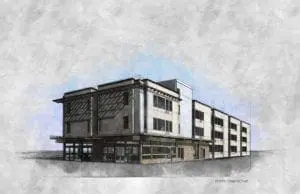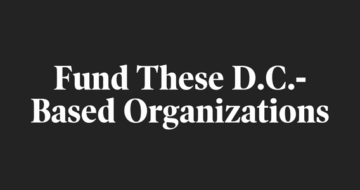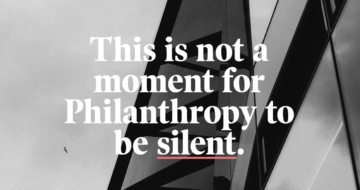Since 2017, April has been designated as Second Chance Month to highlight the barriers to full citizenship faced by people with criminal records, and to spur socioeconomic opportunities for people returning home. Spearheaded by Public Welfare Foundation grantee Prison Fellowship, Second Chance Month has been recognized by nearly 20 jurisdictions and is celebrated by more than 300 partner organizations across the country.
Now, as April comes to a close, we must continue the drumbeat to carry the meaning and intention of Second Chance Month year-round, and push ourselves even further to think about the notion of “chances” in the context of justice.
Education, employment, and housing are basic needs and rights. Those needs and rights provide people with a sense of agency, dignity in themselves and their communities, strengthens state and local economies, and allows for living fulfilling lives. But for millions of people with criminal records, there are limits to the chance and opportunity to obtain those rights. Those restrictions can be imposed by civil and legal barriers, explicit and implicit regulations, and exacerbated by the stigma of a criminal record. These barriers impact a person’s ability to get a job, an education, a house, and other things needed to survive after incarceration and contribute meaningfully to their families and communities.
And the statistics are staggering: formerly-incarcerated people are 10 times more likely to be homeless, the unemployment rate is five times higher for formerly incarcerated people than it is for the general public, and these disparities are even greater for people of color. For some, the chance to access the basic things in life are out of reach. Thankfully, there are many groups working across the country to highlight these issues, eliminate unnecessary barriers to successful living, and coming up with innovative solutions to improve the lives of millions.

Architectural rendering of Second Chance Center’s new PATH permanent, supporting housing unit. When complete, PATH will provide 50 permanent supportive housing units. For more information, visit https://www.providenceattheheights.com/. Photo courtesy of Second Chance Center.
At a moment where there is great appetite for criminal justice reform, we should push ourselves even further to think about how we can provide chances that contribute to reducing mass incarceration’s footprint, promote racial equity, and restore communities devasted by the criminal justice system. We should follow the example of organizations like the Second Chance Center in Colorado, which is developing an innovative permanent supportive housing unit for homeless people, including those who have been involved in the justice system. This is a great example of chances for society’s most vulnerable designed and created by people directly impacted by the justice system. Together, we can extend chances for our most marginalized groups, and ensure equitable access and opportunity to obtain their needs all year-round.



